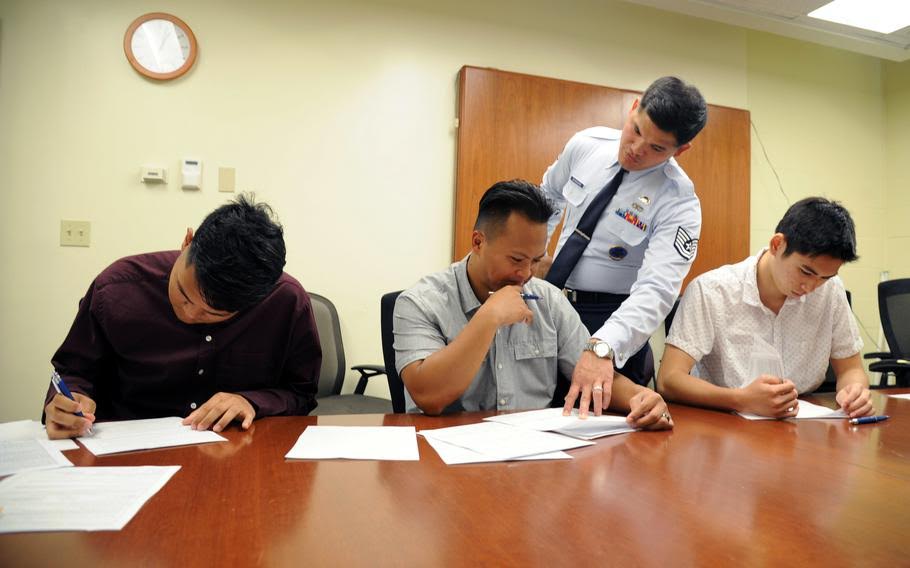Air Force, facing recruit shortfall, dusts off student debt relief program
An Air Force Reserve recruiter explains the enlistment contract to recruits at Joint Base Pearl Harbor-Hickam, Hawaii
The Air Force has revived a recruiting incentive that pays off student debt in an effort to attract new recruits and meet the service’s yearly enlistment quota.
The service is bringing back the Enlisted College Loan Repayment Program that it curtailed nine years ago, Air Force spokeswomen Leslie Brown told Stars and Stripes by email Thursday.
The program offers repayment of up to $65,000 per active-duty recruit and remains open until annual funds are exhausted, according to an Air Force press release March 10.
“Since Air Force Recruiting Service is experiencing a recruitment deficit we have been examining all programs, old and new, to spark interests while remaining relevant and competitive with the rest of the Department of Defense,” Brown said.
This fiscal year’s goal is 26,877 active-duty recruits, she said. The Air Force barely met last year’s mark of 26,141.
The Army and Navy offer similar programs; the Marine Corps, Coast Guard and Space Force do not.
“Air Force Recruiting is excited to see the return of the Enlisted College Loan Repayment Program and continued work on the Reserve Student Loan Repayment Program,” Brig. Gen. Lisa Craig, deputy commander of the recruiting service, said in a statement emailed to Stars and Stripes on Thursday.
The average federal student loan debt in the United States is $37,574 per borrower, according to educationdata.org. On average, 19% of Air Force enlistees have some level of college, and student debt along with it, Brown said.
The Air Force understands the importance and value of continuing education and lifelong learning, Craig’s statement said.
“Having this as an incentive for those who have incurred debt provides relief if they qualify for the program,” she added.
Last year, the Biden administration attempted to roll out a three-part plan to cancel student debt up to $20,000 for qualified students but was met with opposition. The legal challenge to the program is before the Supreme Court.



